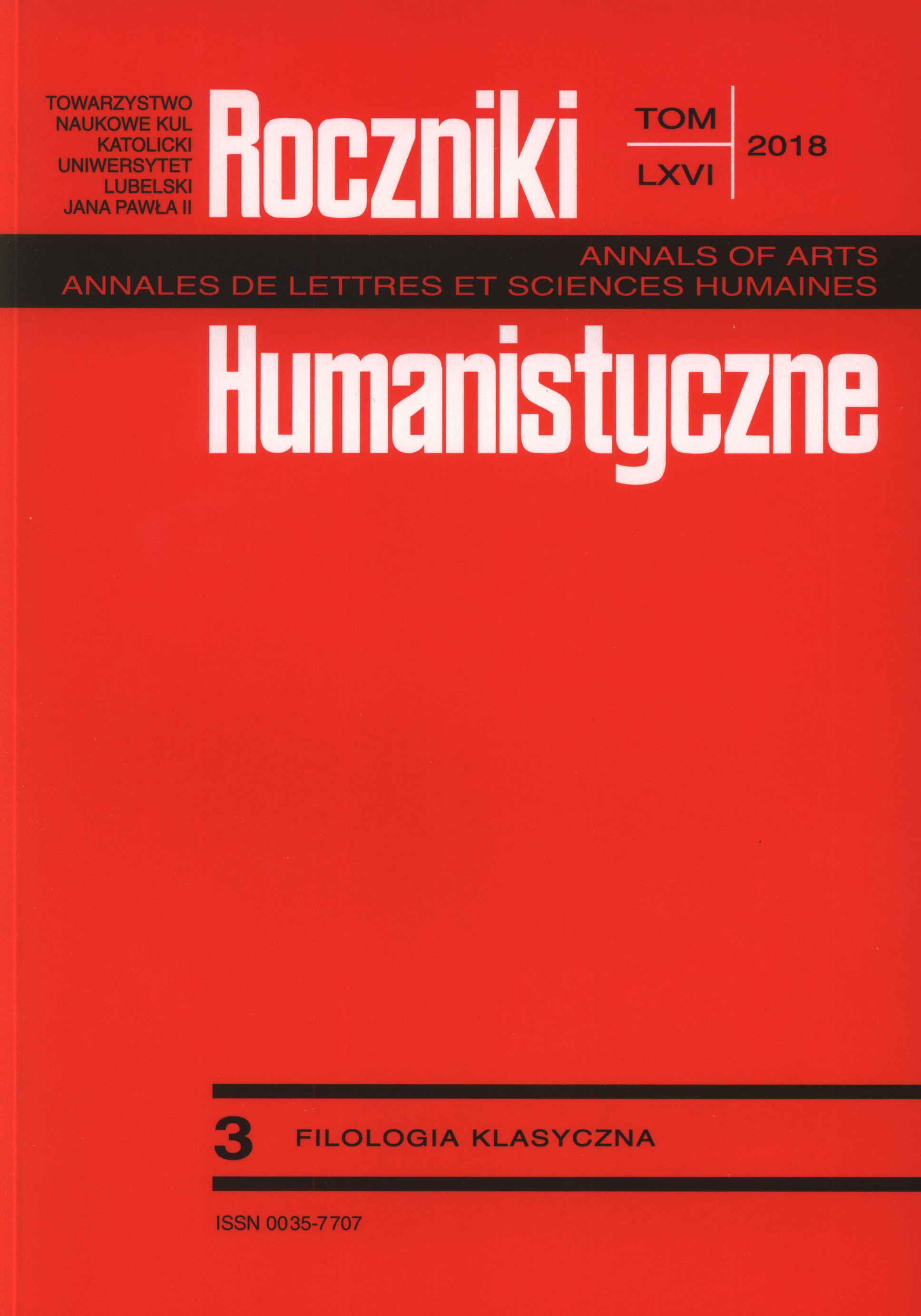Mneme w greckich źródłach literackich epoki przedsokratyków. Część I: literatura archaiczna i przedsokratycy
Mneme in Greek Literary Sources of the Presocratic Era. Part I: Archaic and Presocratic Literature
Author(s): Krzysztof NareckiSubject(s): Language and Literature Studies, Philology
Published by: Towarzystwo Naukowe KUL & Katolicki Uniwersytet Lubelski Jana Pawła II
Keywords: mneme; the term of “memory”; etymology; semantics; ancient Greek literature; archaic (preclassical) period; lyric poetry; Presocratics
Summary/Abstract: The aim of the article is to trace, in chronological order, the occurrence and the semantic scope of the term mneme (μνήμη) in the preserved Greek literature of the Presocratic period (8th-5th century BC). The noun mneme is an example of the so-called nomina actionis for it designates the activity of „remembering,” i.e. it belongs to the psychological sphere, on the one hand; and „memory”, i.e. the ability or mental power itself by means of which one performs the act of remembering, on the other. Taking into account the preserved context, philological analysis includes 11 instances of using the word mneme in the texts of 10 different authors. The results show that the root *mnā- constituting the word mneme allows for a wide scope of the term – much wider than the contemporary Polish term “pamięć” (memory). The root reveals meanings not recorded by the complete Greek dictionaries, including the largest ones: Greek-English Lexicon (Liddell, Scott, Jones) and The Brill Dictionary of Ancient Greek (Montanari), as well as the lexicons of individual writers’ works.The meanings deciphered here can be classified in the following order: (1) intellectual “power or ability to remember” (Simonides, Eleg. 14) – such meaning of mneme appears for the first time in the history of the term; (2) “memory/recollection of somebody or something” (Hesiod, B 8 D.-K.; Theognis, Elegiae I, 798; Heraclitus, B 126a D.-K); (3) “admiration, respect, recognition, fame” (Hesiod, B 8 D.-K.; Bias, 10 [73a] Die Sieben Weisen, D.-K.; Epicharmus, B 6 D.-K. / 254 Kaibel) – these are the new semantic meanings of mneme, absent from Greek dictionaries, similarly to the subsequent meanings: (4) “awareness” (Aesop, Proverbium 111); (5) “knowledge” (Anaxagoras, B 21b D.-K.); (6) “thought” (Ion, Jacoby F 3b, 392, F fragment 1; Democritus, B 191 D.-K.); (7) “time” (Democritus, B 191 D.-K.) and (8) “care” (Theognis, Elegiae I, 1114). Thus already at the beginning of its development, the term of mneme was assigned meanings which have remained unknown and unrecognised in modern times. These meanings were widely used both in everyday language and in literature and philosophy of the subsequent periods of Greek culture, especially in Plato’s thought and in the writings of his most distinguished student, Aristotle.
Journal: Roczniki Humanistyczne
- Issue Year: 66/2018
- Issue No: 3
- Page Range: 207-231
- Page Count: 25
- Language: Polish

